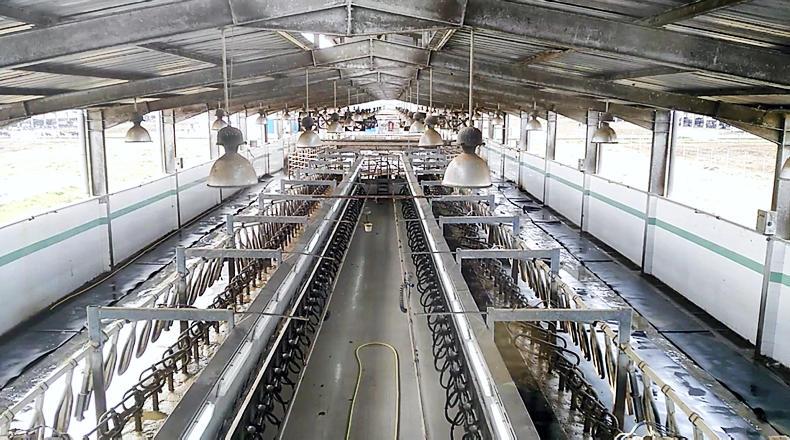In a country where 67% of farms have less than three cows, you do not expect to come across a 2,500-head dairy operation. However, Ferme Laitiere milks exactly that on a 50ha site. The farm is not at full capacity, as it has eight buildings which can house 400 cows each.
In total, there are 5,200 head of stock on the farm, including replacements. Staff numbers are 150. Cows are milked three times a day, taking six hours at a time, in a 50-unit double-up parlour.
The idea behind the farm is to extend learnings to all the farmers that supply Danone. The Holstein-bred cows are producing 9,500 litres per lactation and are fed twice a day. The minimum number of lactations per cow is around three and there is no production in mid-summer due to the high temperatures.
Odile Evans reports from Morocco as part of the Irish agri food trade mission to north Africa. Full story here: https://t.co/QXJ3KTfYJv pic.twitter.com/XLn7Crre2j
— Farmers Journal (@farmersjournal) November 4, 2016
The farm has 550ha of irrigated surface area, using 23 irrigation pivots to produce forage. The cow’s diet consists of maize silage, wheat, alfalfa, soya bean meal and concentrates.
Apparently, this farm is just one of 11 such models in Morocco. However, not all of them are associated with Danone.
Processing
The milk produced here is processed at Extralait in Kenitra. Extralait is a co-op that was founded in 1953, producing powder, milk and butter. From 1980 to 1991, the co-op was involved with Yoplait, which its manager said opened new horizons in terms of technology.
Between 2002 and 2016, €320m has been invested in the facility to increase production capacity and extend the range of products and the distribution network.
Today, milk is collected from 110 collection centres and it is estimated that Extralait has 12,000 suppliers. It has added a range of other products on to the market now including fruit yoghurt and flavoured milk.
As part of the national ‘Green Morocco plan’, which sets out a vision for the country’s agricultural industry, milk production is planned to increase from 2.3bn litres in 2016 to 4bn litres in 2020. Alongside that, the country also has an ambitious plan to increase consumption from 70l milk/capita in 2016 to 90l milk/capita in 2020.
Watch: Brazil’s outdoor glass house turns on production tap
Ireland’s largest dairy farm installs latest Dairymaster technology






 This is a subscriber-only article
This is a subscriber-only article










SHARING OPTIONS: